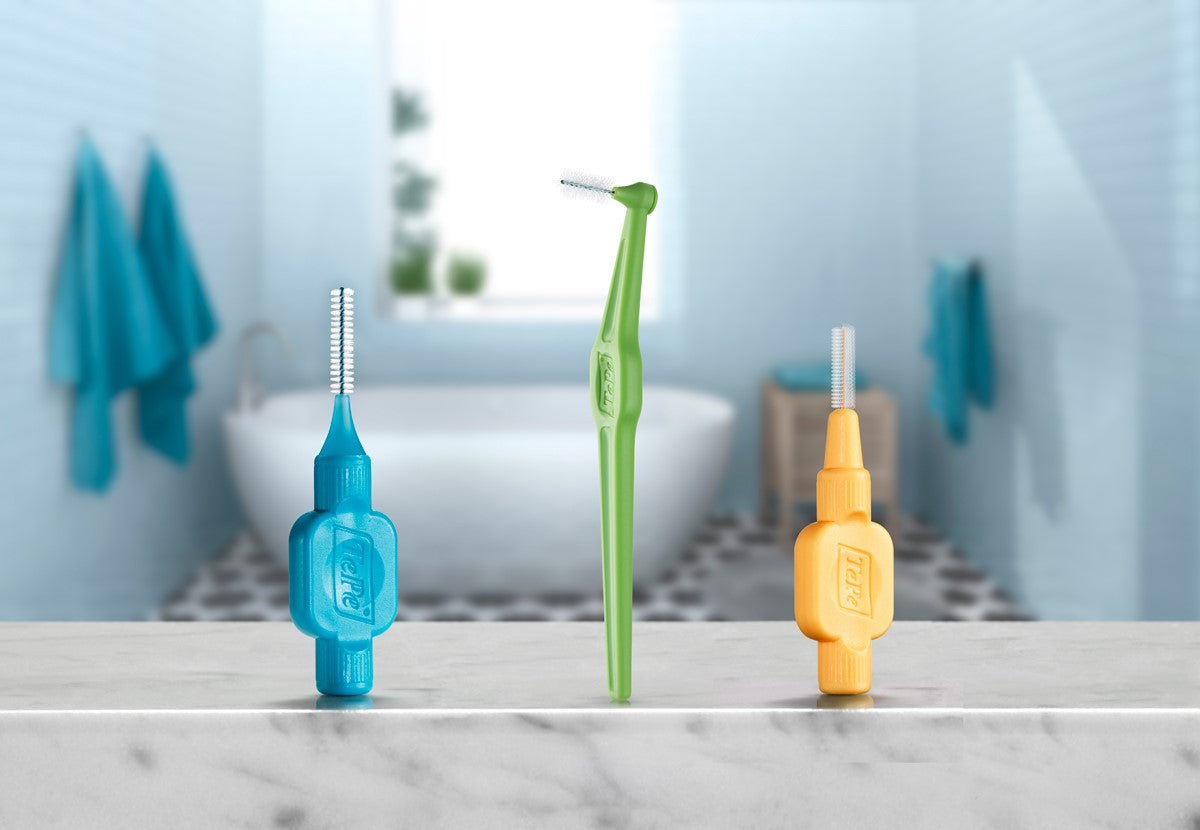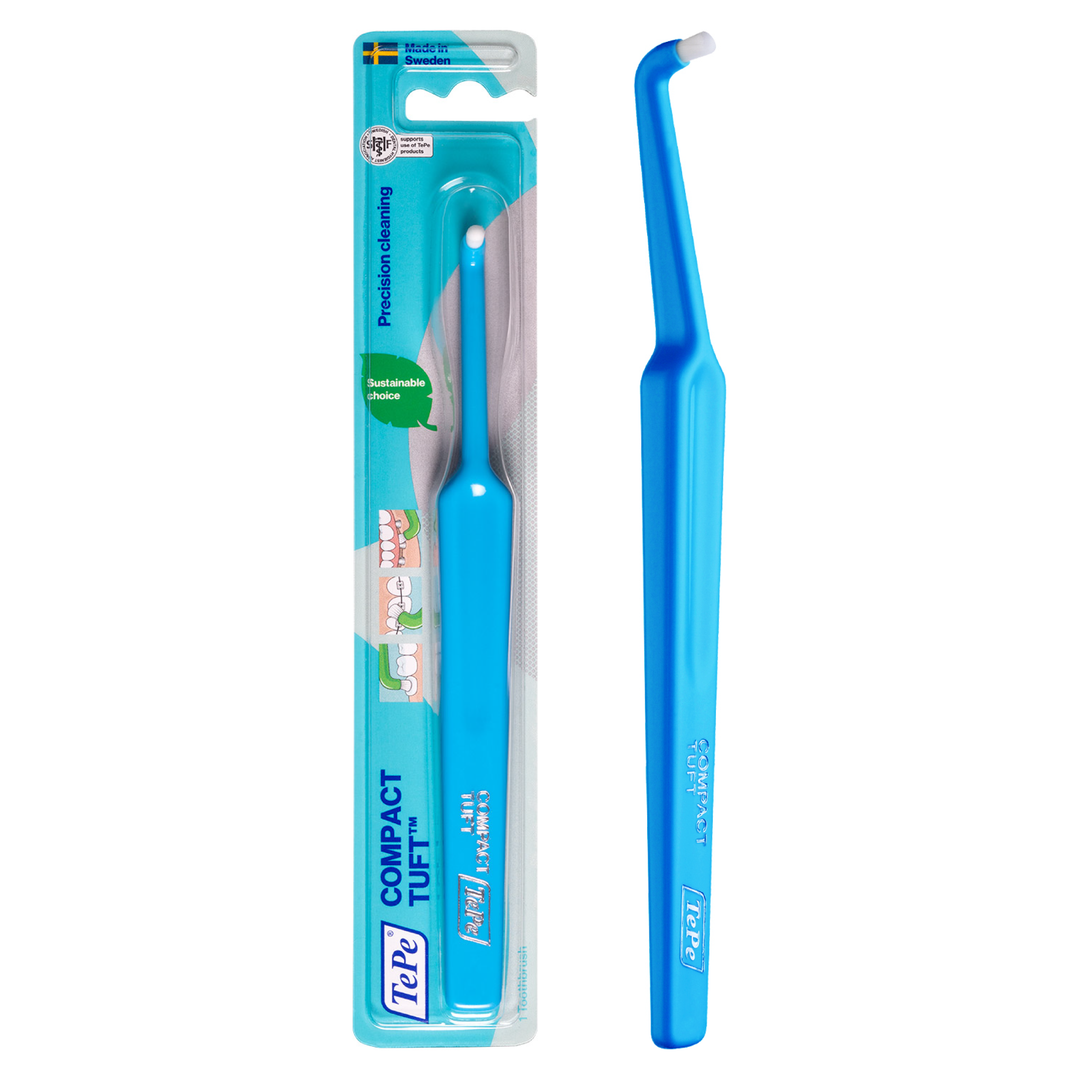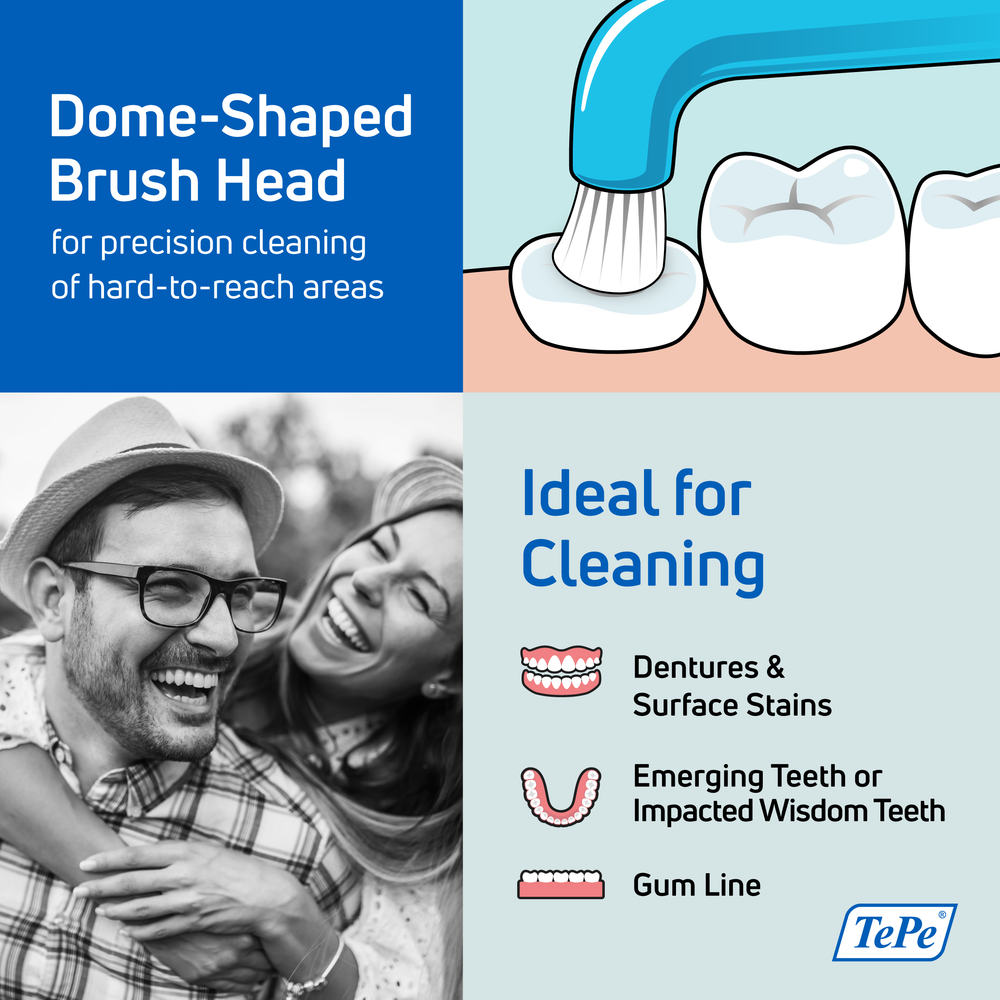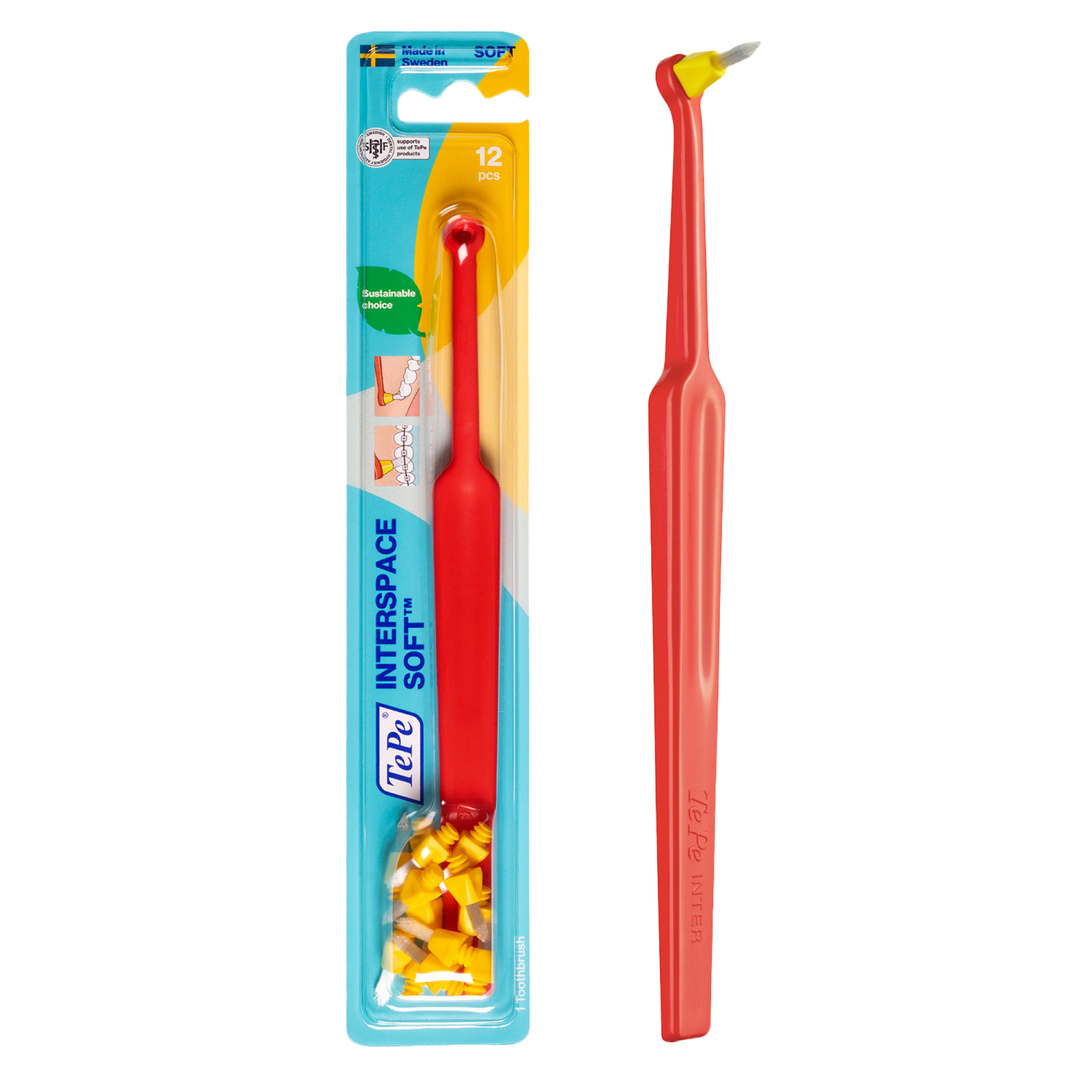The wisdom teeth emerge in the very back of the mouth and usually appear between the ages of 18 and 26. Some have all four wisdom teeth, others have less or none.

What is a wisdom tooth?
Wisdom teeth are the teeth that emerge in the very back of the mouth. Sometimes they stay embedded in the bone and don’t erupt. Some people don’t have wisdom teeth at all.
Common problems with wisdom teeth
A wisdom tooth which emerges slowly may be partially covered by gum tissue, making proper cleaning more difficult. When bacteria build up around the tooth, inflammation and as a result a swelling may occur.
A wisdom tooth can cause trouble by growing in the wrong direction and get trapped behind the adjacent tooth. If the problems are recurrent or if the wisdom tooth is at risk of damaging the adjacent tooth, the wisdom tooth may have to be extracted. Contact your dental professional if you experience pain in or around a wisdom tooth.
How to take care of your wisdom teeth
TePe Nova, a toothbrush with an accentuated brush tip, makes it easier to clean an erupted wisdom tooth.
However, it can be challenging to clean an erupting wisdom tooth with a regular toothbrush. To make cleaning easier you can use a single tufted special brush with an angled neck, for example, TePe Compact Tuft™.
- Use a toothbrush with a tapered brush head for good access in the back of the mouth
- If discomfort remains or the swelling continues, seek advice from your dental professional
What can I do to relieve any discomfort?
It can be difficult to keep away bacteria from your emerging wisdom teeth. The right brushing technique and the right brush can prevent inflammation.
Antibacterial gel can also help to reduce the inflammation around the wisdom teeth. If the problems continue, consult your dental professional for advice.
















